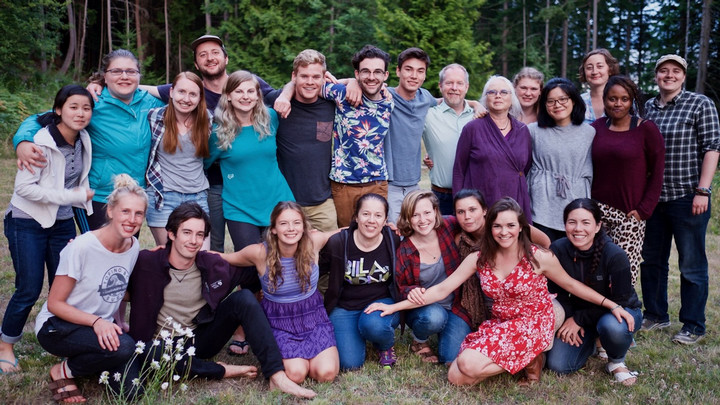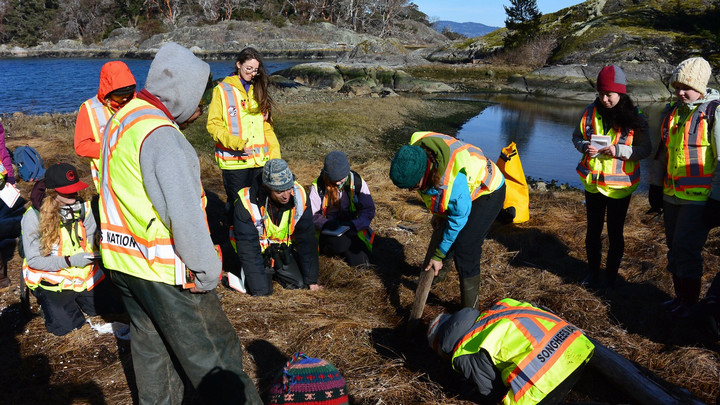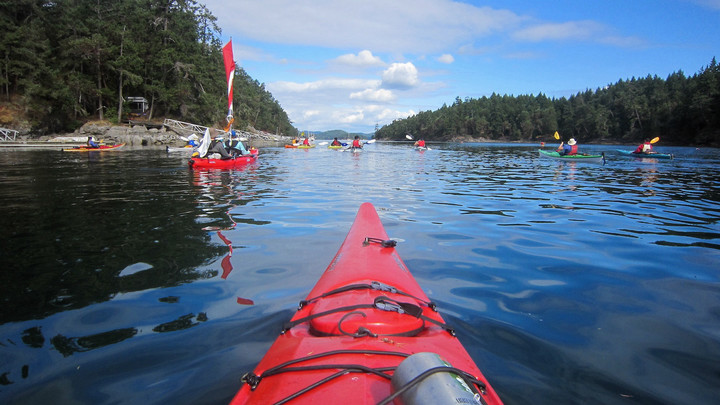Double major or minor
Our classes are taught by people who love what they do and care about their students. You will be in rooms where people know your name and ask what you think, then invite you to participate in projects, field work and conversations that matter.

Environmental studies (ES) is a double major program. This means you must combine your ES major or minor with another major program at UVic. Your designation of BSc or BA is determined by the other major you combine with environmental studies.
This interdisciplinary requirement is structured to expand your skill set, helping you understand complex problems from multiple perspectives and find innovative solutions. You can also participate in our Restoration of Natural Systems and Transformative Climate Action programs and earn additional certifications.
Please reach out to our undergraduate adviser, Ryan Hilperts, with any questions.
Admissions
Learn everything you need to know about becoming a UVic student, from choosing a program and reviewing admission requirements to submitting your application and reporting your grades.
If you have questions, talk to a student recruiter, or attend one of UVic's events.
Courses
Environmental studies courses draw from our three streams of research: ethnoecology, ecological restoration and political ecology, helping you to build your knowledge from different perspectives.
Many Restoration in Natural Systems courses may be transferable to your environmental studies program. You can also complete a diploma in RNS at the same time!
Courses in the Transformative Climate Action program can also be used towards your environmental studies program.
Field schools

UVic's environmental studies field schools offer undergraduate students hands-on learning in diverse ecosystems and communities. These programs blend practical skills, interdisciplinary knowledge and community engagement to prepare students for environmental challenges. Each field school focuses on a specific theme, allowing students to deeply explore environmental topics.
Most field schools are admitted by application (deadline February 1st for summer term). Field schools also require an additional fee beyond usual tuition, but thanks to a generous donation from Dr. Lorene Kennedy, we can offer financial support for these experiences. Please see more information under Funding.
Community-engaged learning
New in the Faculty of Social Sciences, you can add a community engagement (CE) option to your degree. As an environmental studies major or honours student, you can take courses that give you skills to work, learn and/or conduct research with community partners. With a focus on community-engaged learning, this CE option provides you with a foundation in perspectives and skills necessary for ethical civic engagement for your future career.
Complete all of the following:
- CE200 - Introduction to Community Engagement (1.5)
- CE300 - Working in the Community (1.5)
- Two additional CEL-related courses from the electives list
Read about the CE option in the UVic calendar and watch a video to learn more!

Directed studies
Directed studies (ES 490) are a unique opportunity to take on a research project with the support and direction of a faculty member. It’s recommended to work with a professor you have worked with in the past, or with one who has a special expertise in your topic.
Funding
UVic offers scholarships, bursaries, awards and other funding opportunities to help you further your education and succeed in your studies.
Environmental studies scholarships
Most scholarships are awarded based on recommendations made by the school. However, some require a separate application form.
Awards for Environmental Studies students
Lorene Kennedy Field Course Awards
A generous endowment allows us to reimburse a portion of field course fees, for full or part time students, through the Lorene Kennedy Field Course Awards. Eligible students include:
- environmental studies undergraduate declared majors and minors
- environmental studies graduate students
- students in the RNS diploma program
Field school fees must be paid in full, and a percentage will be reimbursed in the semester following successful completion of the course.
Jamie Cassels Undergraduate Research Awards (JCURA)
The Jamie Cassels Undergraduate Research Award supports students who complete a research project under the mentorship of a faculty supervisor.
Full-time third and fourth year students with a GPA of 7.0 or above are eligible to apply. Each successful student receives a $1,500 credit in their UVic account.
Valerie Kuehne Undergraduate Research Awards (VKURA)
The Valerie Kuehne Undergraduate Research Award is an internship opportunity for first- and second-year students to gain research-enriched and applied experiences in their field of study. Students gain experience working within a research environment that is collaborative and collegial with direct support from a faculty mentor.
BC Nature Scholarships
BC Nature offers the $2000 Rene Savenye Scholarship for undergraduate students contributing to the understanding and appreciation of the natural environment. Application deadline is July 15, 2024.
For more information, visit BC Nature Scholarships.
Co-op
Our optional co-operative education (co-op) program gives you hands-on paid work experience related to what you're studying. It's the perfect way to develop your skills and find a career you love.
Environmental studies students work outside the classroom on real-world projects, helping you to develop your skills and make valuable connections to industry employers.
Learn more about what co-op is, how it works with your degree and what to expect as a co-op student.
Career options
Students in the School of Environmental Studies gain the skills to participate in the resolution of environmental challenges through decision-making, intervention, conservation, management, education and participatory research.
Undergrad FAQs
There are only two required courses at the first and second year level: ES 200: Introduction to Environmental Studies and ES 240: Ecological Processes. After you have completed these courses you can move on to our third and fourth year offerings.
If you intend to pursue the option in community engagement, you will also want to take CE 200 during your first or second year.
The most common combinations are with Geography or Biology, but almost any combination is possible (Political Science, Anthropology, Sociology, Economics, etc). Some combinations are just more challenging to schedule than others, but academic advising can help you make a plan that will work for you.
Many of our courses, at all levels, have an experiential component, including tutorials, field trips, and service learning opportunities. Environmental studies has several field school and field courses available at the 3rd and 4th year levels. The courses in the new Option in Community Engagement are all experiential.
You could consider joining the Social Sciences Co-operative Education Program (Co-op) where you would have an opportunity to combine your studies with four terms of paid employment in the public, private, or non-profit sectors.
The Restoration of Natural Systems program (RNS) offers both diploma and certificate programs in the field of environmental restoration. There are numerous courses that are cross-listed in both environmental studies and environmental restoration.
